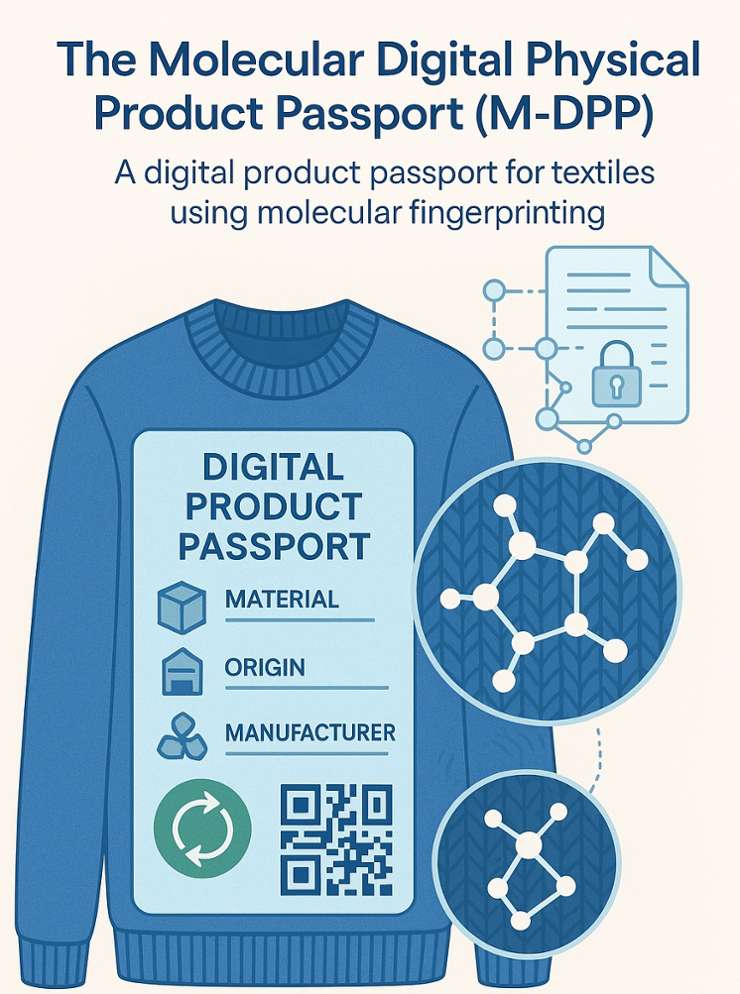Projecten
Bekijk alle projecten van de Hogeschool van Amsterdam. Zoek je een bepaald project? Gebruik dan de zoekfunctie bovenaan de pagina.
M-DPP - Digitale paspoorten voor traceerbare kleding
-Het M-DPP-project ontwikkelt een digitaal productpaspoort voor textiel, gebaseerd op moleculaire data. Voor eerlijke, herleidbare en circulaire mode

Ondersteuningsroute Bewegen en Motoriek voor Speciaal Onderwijs
-Onderzoekers ontwikkelen een aangepaste Ondersteuningsroute Bewegen en Motoriek voor cluster 3 en 4 in het speciaal onderwijs.

SONETTO: preventie sarcopene obesitas
-Onderzoekers werken aan het voorkomen van sarcopenie (tekort aan spiermassa en spierfunctie), obesitas en de combinatie daarvan: sarcopene obesitas.

Circular Urban Fashion: Europe’s Inclusive Renaissance CIRCUFash
-CIRCUFash is een internationaal Erasmus+ project waarin mode, identiteit en maatschappelijke verantwoordelijkheid samenkomen.

Quantum Sensing voor een veilige Noordzee
-HvA ontwikkelt quantumsensoren voor betere detectie en monitoring op de Noordzee, met toepassingen voor veiligheid en bescherming van infrastructuur.

DIGI-DOEN: digitaal platform voor thuiswonende ouderen
-DIGI-DOEN ontwikkelt samen met ouderen en professionals een digitaal platform dat zelfstandig functioneren en sociale participatie ondersteunt.

Reflectie-instrument voor verantwoorde AI-governance in publieke organisaties
-Publieke organisaties gebruiken steeds vaker generatieve AI. Dat biedt kansen, maar roept ook de vraag op: wie is verantwoordelijk?

RECOVER
-RECOVER ontwikkelt begeleiding op maat voor mensen met kanker vóór en na een operatie. Het project verbetert herstel, zelfredzaamheid en samenwerking in de zorg

Evaluatie TeamNL Olympische en Paralympische Winterspelen Milaan 2026
-Onderzoekers evalueren voor NOC*NSF de prestatieondersteuning rond TeamNL tijdens de Olympische en Paralympische Winterspelen Milaan Cortina 2026.

Building for Wellbeing TOO
-Building for Wellbeing TOO onderzoekt hoe nieuwe woon- en gebiedsconcepten bijdragen aan well-being en hoe je dit borgt in gebiedsontwikkeling.

Bruggen bouwen rond de basisschool - Hoe onderwijs en welzijn samenwerken om ouders en kinderen te ondersteunen
-In dit project worden casussen onderzocht die zich richten op samenwerkingsverbanden tussen basisscholen en welzijnspartners om armoede onder te signaleren

Het LESSEN Project
-Project LESSEN maakt AI toegankelijker met chatbots die minder data nodig hebben, veilig omgaan met informatie en hun keuzes duidelijk uitleggen.

Creating the Desire for Change in Higher Education - Tools
-Instrumenten en workshops voor de integratie van onderzoek in onderwijs.

eXtreme Citizen Science Hub Amsterdam
-Citizen science is onderzoek mét en dóór burgers. Dit project zet een hub op in Amsterdam die citizen science-initiatieven verbindt en samenwerking versterkt.

UrbanSWARM: nature-based solutions voor circulaire en toekomstbestendige steden
-UrbanSWARM transformeert onbenutte stedelijke ruimte met impactvolle nature-based solutions om klimaatverandering, waterschaarste en ongelijkheid aan te pakken.

Theory of Change Magical Bridge Foundation
-Onderzoekers ontwikkelen een Theory of Change voor Magical Bridge. Het model maakt de maatschappelijke waarde van inclusieve speelplekken inzichtelijk.
